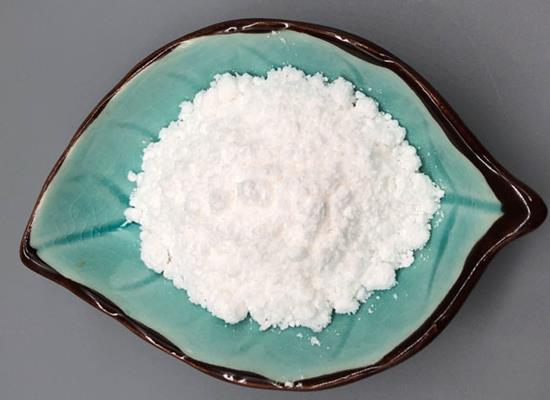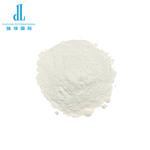Oxaliplatin: Pharmacology and Clinical Applications
Jul 4,2024
General Description
Oxaliplatin, a third-generation platinum-based chemotherapeutic agent, plays a crucial role in various cancer treatments, particularly colorectal cancer and gastrointestinal malignancies. Its unique pharmacological profile and ability to form platinum-DNA adducts lead to DNA cross-linking and apoptosis of cancer cells. Incorporated into essential regimens like FOLFOX, CAPOX, and the advanced FLOT regimen, Oxaliplatin improves histopathological response rates, overall survival, and progression-free survival. Notably, in perioperative settings, Oxaliplatin within the FLOT protocol aids in tumor control pre- and post-surgery, enhancing resection rates and reducing cancer recurrence. Overall, Oxaliplatin is a fundamental component in modern oncology, advancing cancer treatment strategies and improving clinical outcomes.

Figure 1. Oxaliplatin
Pharmacology
Distinct Pharmacological Profile
Oxaliplatin is a third-generation platinum-based chemotherapeutic agent that contains a diaminocyclohexane (DACH) structure, distinguishing it from its predecessors, cisplatin and carboplatin. Patented in 1976 and approved for medical use in 1996, Oxaliplatin demonstrates significant clinical activity both as a monotherapy and, more commonly, in combination with other chemotherapy agents. Oxaliplatin's unique pharmacological profile allows it to form the backbone of several key chemotherapy regimens, notably FOLFOX (combining 5-fluorouracil and leucovorin) and CAPOX (combining capecitabine), which are widely used in colorectal cancer treatment. In addition to these doublet combinations, Oxaliplatin is also integral to triplet regimens like ECF/ECX (with epirubicin) for gastric and gastroesophageal junction cancers. More recently, the FLOT regimen, which includes 5-FU, Oxaliplatin, and docetaxel, has been introduced as an effective alternative to prior regimens involving cisplatin, showing promising efficacy with improved safety profiles.
Mechanism of Action
The pharmacological action of Oxaliplatin involves the formation of platinum-DNA adducts, leading to DNA cross-linking and subsequent apoptosis of cancer cells. This mechanism underpins its effectiveness across various malignancies while offering a distinct toxicity spectrum compared to other platinum drugs. Thus, Oxaliplatin remains a critical component in modern oncology, providing robust therapeutic options with manageable adverse effects. 1
Clinical Applications
Perioperative Chemotherapy
Oxaliplatin, a cornerstone of modern chemotherapy, is integral in treating various cancers, especially colorectal cancer and other gastrointestinal malignancies. Its pivotal role is not only in routine therapeutic regimens but also in advanced, intensive protocols like the FLOT regimen, which specifically targets gastric and gastroesophageal junction (GEJ) cancers. The clinical utility of Oxaliplatin extends beyond traditional treatments, offering substantial improvements in patient outcomes when included in the perioperative FLOT protocol. This regimen, combining Oxaliplatin with fluorouracil, leucovorin, and docetaxel, is administered in a series of biweekly cycles before and after surgical intervention.
Advanced Gastrointestinal Cancers
The structured application of Oxaliplatin within this framework allows for enhanced control of tumor progression and better surgical results, particularly in cases of locally advanced or oligometastatic resectable cancers. Oxaliplatin's effectiveness was notably highlighted in the Phase II/III FLOT4 trial, which underscored its superiority over older regimens such as ECF/ECX. This trial, involving multiple German centers, demonstrated that Oxaliplatin-based therapy significantly improves histopathological response rates, overall survival, and progression-free survival. For instance, the trial revealed a markedly higher complete histopathological response in patients treated with the FLOT regimen compared to those receiving the ECF/ECX treatment. Moreover, Oxaliplatin's contribution to the FLOT regimen enhances the possibility of achieving an R0 resection, where no microscopic disease remains post-surgery. This is crucial for reducing the likelihood of cancer recurrence and extending survival rates. The superior resection rates and better control over disease progression underscore Oxaliplatin's importance in perioperative chemotherapy settings.
Significance in Advancing Cancer Treatment Protocols
In clinical practice, the application of Oxaliplatin has significantly evolved, especially in the management of advanced gastrointestinal cancers. Its role in improving surgical outcomes through effective tumor reduction before surgery and minimizing residual disease afterwards has been well-documented. This makes Oxaliplatin not just a treatment but a vital component of a broader strategic approach to managing complex cancer cases, ensuring that patients have the best chances of a favorable prognosis. Thus, Oxaliplatin remains a vital chemotherapeutic agent, central to the advancement of cancer treatment protocols and significantly impacting clinical outcomes through its inclusion in comprehensive treatment strategies like the FLOT protocol. 2
Reference
1. Raymond E, Faivre S, Chaney S, et al Cellular and molecular pharmacology of oxaliplatin. Mol Cancer Ther. 2002; 1(3): 227–235.
2. Fritsch R, Hoeppner J. Oxaliplatin in perioperative chemotherapy for gastric and gastroesophageal junction (GEJ) adenocarcinoma. Expert Rev Gastroenterol Hepatol. 2019; 13(4): 285-291.
- Related articles
- Related Qustion
Tetrabutylammonium iodide facilitates phase transfer, enhancing organic synthesis via transition-metal-free cross-coupling reactions with tert-butyl hydroperoxide for diverse bond formation.....
Jul 4,2024APIGenistein from soy benefits health by inhibiting tumors, preventing cancer, easing menopause symptoms, reducing cardiovascular risk and providing neuroprotective and anti-inflammatory effects.....
Jul 4,2024APIOxaliplatin
61825-94-3You may like
- Oxaliplatin
-

- $0.00 / 25KG
- 2024-07-22
- CAS:61825-94-3
- Min. Order: 2KG
- Purity: EP7.2
- Supply Ability: 20tons
- Oxaliplatin
-

- $26.00 / 1kg
- 2024-06-13
- CAS:61825-94-3
- Min. Order: 1kg
- Purity: 99%
- Supply Ability: 5000 Ton
- Oxaliplatin
-

- $18.00 / 10kg
- 2024-05-10
- CAS:61825-94-3
- Min. Order: 1kg
- Purity: 99.9
- Supply Ability: 5000




